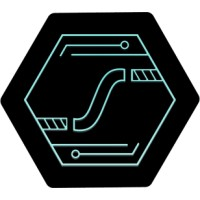Positron Rises: A New Era for AI Inference Chips
July 31, 2025, 9:36 am

Location: United States, California, San Francisco
Employees: 1001-5000
Founded date: 2009
Total raised: $4.63B
Positron directly challenges Nvidia in AI inference chips. It offers energy-efficient, memory-optimized hardware. Atlas, its current chip, slashes power consumption and costs for enterprise AI. Titan, launching 2026, targets future superintelligence models. Positron secured over $51 million, addressing critical data center bottlenecks like cost, power, and GPU shortages. Its U.S.-made, air-cooled solutions seamlessly integrate, powering diverse sectors. This innovative approach promises a new era of accessible, high-performance AI.
The artificial intelligence landscape demands constant innovation. AI applications are everywhere. Their underlying infrastructure faces immense pressure. Companies grapple with escalating costs. Power consumption remains a significant hurdle. Graphics processing unit (GPU) shortages persist. A new player emerges to tackle these challenges. Positron aims to revolutionize AI inference. This is where AI models deliver their output. Positron offers specialized, energy-efficient chips. These chips are poised to redefine enterprise AI.
AI models thrive on data. They require immense processing power. Training AI models is one phase. Deploying them for real-world use is another. This deployment phase is called inference. It generates AI responses in production environments. Inference is now the critical bottleneck. Current general-purpose GPUs, while powerful, are not optimized for this. They often underutilize memory bandwidth. This inefficiency drives up costs. It wastes energy. Positron identifies this gap. It focuses entirely on optimizing AI inference.
Positron's flagship product is Atlas. Atlas is a first-generation inference accelerator. It handles large transformer models with ease. Atlas boasts superior efficiency. It delivers 3.5 times better performance per dollar. It uses up to 66% less power than leading GPUs. This translates into substantial savings. Atlas achieves remarkable memory bandwidth utilization. It hits 93%. Typical GPUs manage only 10-30%. This efficiency is a game-changer.
Atlas fits seamlessly into existing data centers. It does not require liquid cooling. It avoids extreme power densities. This makes it a drop-in solution. Enterprises can deploy Atlas without infrastructure overhauls. It supports models up to 0.5 trillion parameters. It is compatible with popular transformer models. It works via an OpenAI API-compatible endpoint. This ensures broad applicability.
Atlas is already in production. Major players use it. Cloudflare deploys Atlas in its global data centers. Parasail utilizes its hardware for AI infrastructure. Adoption spans diverse sectors. These include networking, gaming, and content moderation. Content delivery networks benefit. Token-as-a-Service providers also see value. Atlas addresses their need for high throughput and low power.
Positron looks ahead. The next-generation platform is Titan. It launches in 2026. Titan builds on custom-designed 'Asimov' silicon. It will push boundaries. Titan will feature massive memory capacity. It offers up to two terabytes of high-speed memory per accelerator. This is an order-of-magnitude increase over current GPUs.
Titan targets frontier AI models. It supports models up to 16 trillion parameters. Today's largest models are in the hundreds of billions. Some reach single-digit trillions. Future models like OpenAI's GPT-5 are expected to exceed this. Titan is designed for these advancements. It is built for artificial general intelligence (AGI). It prepares for superintelligence. These are AI systems exceeding human capabilities. Crucially, Titan also operates with standard air cooling. It integrates into conventional data centers. No specialized, liquid-cooled setups are needed.
Positron prioritizes compatibility. Its systems are drop-in replacements. Customers use existing model binaries. No code rewrites are required. The company focuses narrowly on inference. It designs hardware to ingest Nvidia-trained models directly. This pragmatic approach speeds deployment. It validates performance with real users. It simplifies adoption for enterprises.
The manufacturing pipeline is domestic. Positron's first-generation chips were fabricated in the U.S. Intel facilities were utilized. Server assembly and integration are also domestic. The ‘Asimov’ chip for Titan will shift to TSMC. However, Positron aims to keep most production stateside. This focus strengthens geopolitical resilience. It ensures supply chain stability. It provides a compelling alternative for many customers.
The AI hardware market is dynamic. It is also competitive. Positron enters this challenging environment. Rivals face headwinds. One competitor recently reduced its 2025 revenue projection significantly. Entrenched GPU providers dominate the space. Nvidia remains a formidable force.
The rise of smaller, more efficient language models presents another trend. Small Language Models (SLMs) can even run on mobile devices. Positron leadership embraces this duality. They believe both lightweight edge applications and heavyweight centralized processing will grow. Large models in data centers will continue to generate deeper insights. Positron aims to serve that need efficiently.
Investor confidence in Positron is strong. The company secured an oversubscribed $51.6 million Series A funding round. This brings total funding to over $75 million this year. Valor Equity Partners led the round. Atreides Management and DFJ Growth also participated. Flume Ventures, Resilience Reserve, and 1517 Fund contributed. Scott McNealy and Unless also provided support. This significant investment validates Positron's approach. It underscores its market potential.
Positron’s ability to execute quickly is noteworthy. Atlas shipped just 15 months after founding. This was achieved with only $12.5 million in seed capital. Such capital-efficient execution distinguishes Positron. It sets it apart in a crowded market.
Positron’s vision centers on fundamental shifts in AI workloads. Older convolutional neural networks were compute-bound. Modern transformer architectures are memory-bound. They demand massive memory capacity and bandwidth. Current industry focus remains on compute scaling. Positron bets on a memory-first design. Boosting memory utilization directly impacts performance. It dramatically improves power efficiency.
Atlas already outperforms contemporary GPUs. Titan aims higher. It will offer the industry’s highest memory capacity per chip. This will come without specialized cooling or networking. Positron targets broad compatibility. It seeks maximum utility for enterprises, cloud providers, and research labs. Positron offers physical infrastructure based on economics. Its performance speaks for itself. This builds credibility in a skeptical market. Positron is poised to reshape the future of AI infrastructure. It delivers performance, efficiency, and accessibility.
The artificial intelligence landscape demands constant innovation. AI applications are everywhere. Their underlying infrastructure faces immense pressure. Companies grapple with escalating costs. Power consumption remains a significant hurdle. Graphics processing unit (GPU) shortages persist. A new player emerges to tackle these challenges. Positron aims to revolutionize AI inference. This is where AI models deliver their output. Positron offers specialized, energy-efficient chips. These chips are poised to redefine enterprise AI.
The Inference Bottleneck
AI models thrive on data. They require immense processing power. Training AI models is one phase. Deploying them for real-world use is another. This deployment phase is called inference. It generates AI responses in production environments. Inference is now the critical bottleneck. Current general-purpose GPUs, while powerful, are not optimized for this. They often underutilize memory bandwidth. This inefficiency drives up costs. It wastes energy. Positron identifies this gap. It focuses entirely on optimizing AI inference.
Atlas: Powering Today's AI
Positron's flagship product is Atlas. Atlas is a first-generation inference accelerator. It handles large transformer models with ease. Atlas boasts superior efficiency. It delivers 3.5 times better performance per dollar. It uses up to 66% less power than leading GPUs. This translates into substantial savings. Atlas achieves remarkable memory bandwidth utilization. It hits 93%. Typical GPUs manage only 10-30%. This efficiency is a game-changer.
Atlas fits seamlessly into existing data centers. It does not require liquid cooling. It avoids extreme power densities. This makes it a drop-in solution. Enterprises can deploy Atlas without infrastructure overhauls. It supports models up to 0.5 trillion parameters. It is compatible with popular transformer models. It works via an OpenAI API-compatible endpoint. This ensures broad applicability.
Atlas is already in production. Major players use it. Cloudflare deploys Atlas in its global data centers. Parasail utilizes its hardware for AI infrastructure. Adoption spans diverse sectors. These include networking, gaming, and content moderation. Content delivery networks benefit. Token-as-a-Service providers also see value. Atlas addresses their need for high throughput and low power.
Titan: Shaping Tomorrow's Intelligence
Positron looks ahead. The next-generation platform is Titan. It launches in 2026. Titan builds on custom-designed 'Asimov' silicon. It will push boundaries. Titan will feature massive memory capacity. It offers up to two terabytes of high-speed memory per accelerator. This is an order-of-magnitude increase over current GPUs.
Titan targets frontier AI models. It supports models up to 16 trillion parameters. Today's largest models are in the hundreds of billions. Some reach single-digit trillions. Future models like OpenAI's GPT-5 are expected to exceed this. Titan is designed for these advancements. It is built for artificial general intelligence (AGI). It prepares for superintelligence. These are AI systems exceeding human capabilities. Crucially, Titan also operates with standard air cooling. It integrates into conventional data centers. No specialized, liquid-cooled setups are needed.
Strategic Integration and U.S. Manufacturing
Positron prioritizes compatibility. Its systems are drop-in replacements. Customers use existing model binaries. No code rewrites are required. The company focuses narrowly on inference. It designs hardware to ingest Nvidia-trained models directly. This pragmatic approach speeds deployment. It validates performance with real users. It simplifies adoption for enterprises.
The manufacturing pipeline is domestic. Positron's first-generation chips were fabricated in the U.S. Intel facilities were utilized. Server assembly and integration are also domestic. The ‘Asimov’ chip for Titan will shift to TSMC. However, Positron aims to keep most production stateside. This focus strengthens geopolitical resilience. It ensures supply chain stability. It provides a compelling alternative for many customers.
Navigating a Volatile Market
The AI hardware market is dynamic. It is also competitive. Positron enters this challenging environment. Rivals face headwinds. One competitor recently reduced its 2025 revenue projection significantly. Entrenched GPU providers dominate the space. Nvidia remains a formidable force.
The rise of smaller, more efficient language models presents another trend. Small Language Models (SLMs) can even run on mobile devices. Positron leadership embraces this duality. They believe both lightweight edge applications and heavyweight centralized processing will grow. Large models in data centers will continue to generate deeper insights. Positron aims to serve that need efficiently.
Investment and Validation
Investor confidence in Positron is strong. The company secured an oversubscribed $51.6 million Series A funding round. This brings total funding to over $75 million this year. Valor Equity Partners led the round. Atreides Management and DFJ Growth also participated. Flume Ventures, Resilience Reserve, and 1517 Fund contributed. Scott McNealy and Unless also provided support. This significant investment validates Positron's approach. It underscores its market potential.
Positron’s ability to execute quickly is noteworthy. Atlas shipped just 15 months after founding. This was achieved with only $12.5 million in seed capital. Such capital-efficient execution distinguishes Positron. It sets it apart in a crowded market.
A Future Built on Efficiency
Positron’s vision centers on fundamental shifts in AI workloads. Older convolutional neural networks were compute-bound. Modern transformer architectures are memory-bound. They demand massive memory capacity and bandwidth. Current industry focus remains on compute scaling. Positron bets on a memory-first design. Boosting memory utilization directly impacts performance. It dramatically improves power efficiency.
Atlas already outperforms contemporary GPUs. Titan aims higher. It will offer the industry’s highest memory capacity per chip. This will come without specialized cooling or networking. Positron targets broad compatibility. It seeks maximum utility for enterprises, cloud providers, and research labs. Positron offers physical infrastructure based on economics. Its performance speaks for itself. This builds credibility in a skeptical market. Positron is poised to reshape the future of AI infrastructure. It delivers performance, efficiency, and accessibility.
